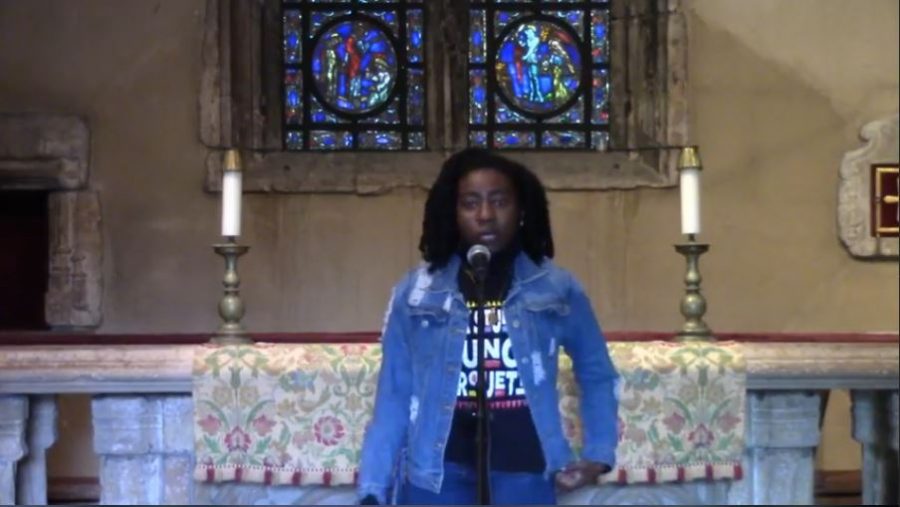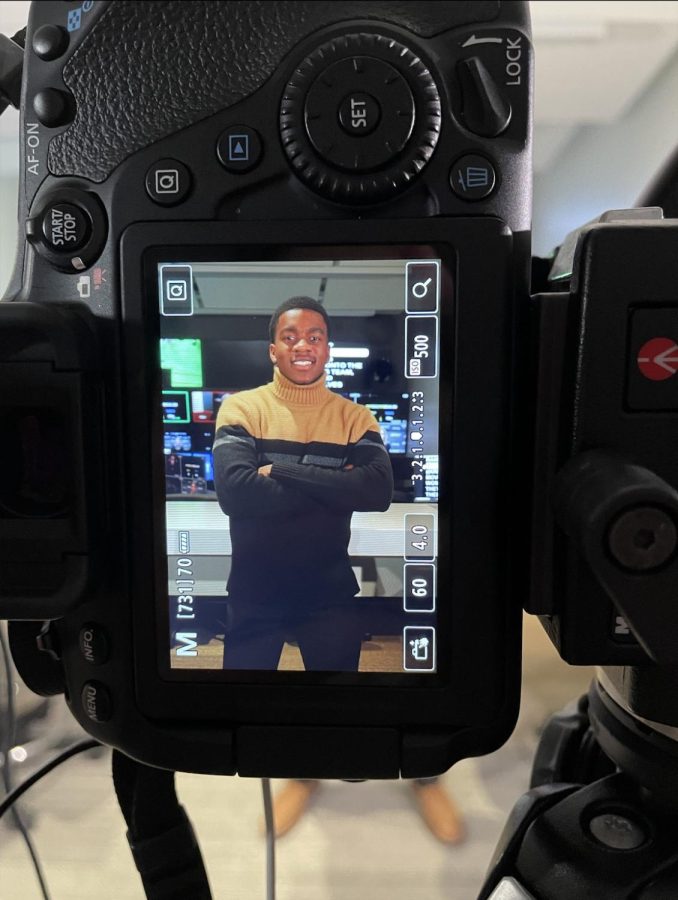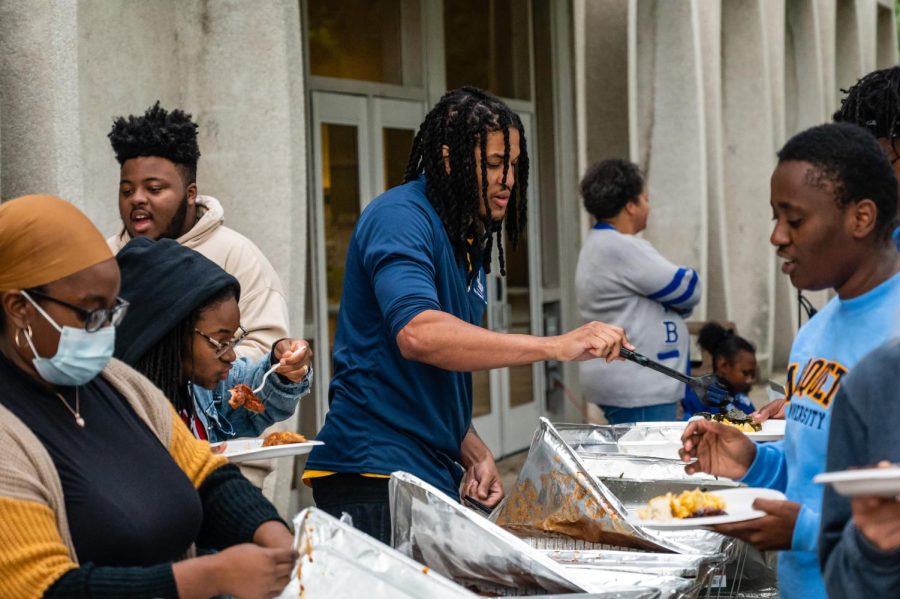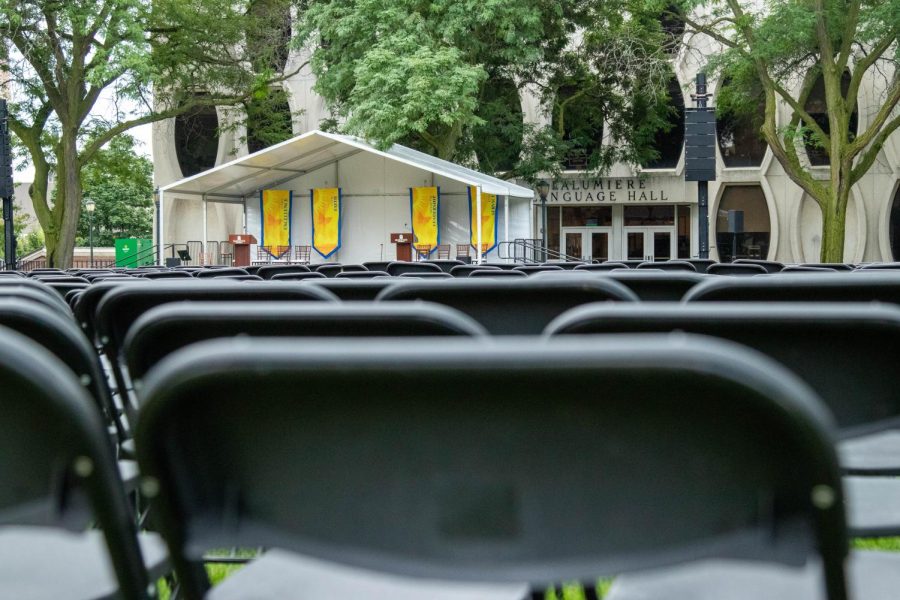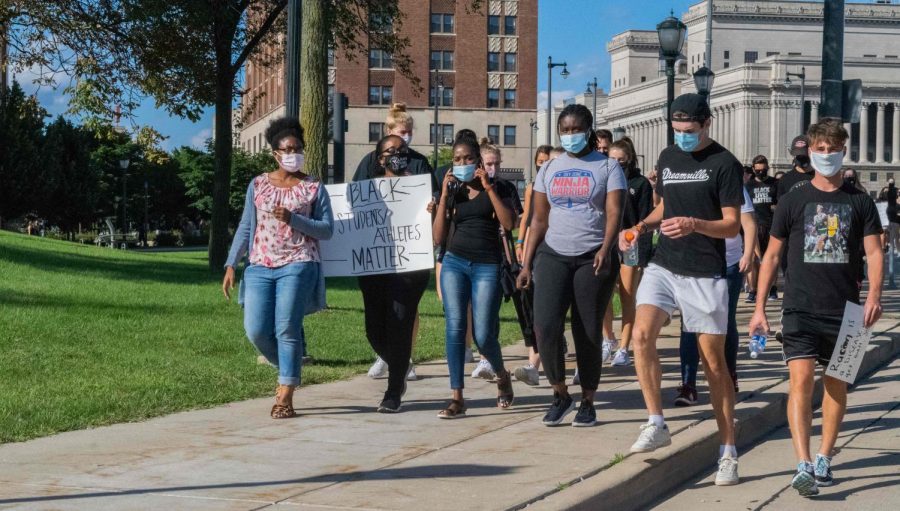Members of Black Student Council and Marquette University President Michael Lovell held a Facebook Live prayer service inside of St. Joan of Arc Chapel addressing racial injustices at Marquette last Friday.
Rev. James Voiss opened up the prayer service by addressing the racially charged shootings of black men and women over the past couple of months, which have sparked social movements across the world.
“We have been reminded of the depths of racial inequality and injustice that permeate our society,” Voiss said.
He then cited the deaths of Ahmed Aubery, Breonna Taylor and George Floyd and the shooting of Jacob Blake in Kenosha, Wisconsin.
“These (deaths) are life-shattering, world-shattering events,” he said.
Voiss said that the realities of racism are not just external to the Marquette community, but that racism is a force that has been and is currently within Marquette.
Following Voiss’ comments, Lonny Clay, a sophomore in the College of Arts & Sciences, spoke on what it means to be an ally during a time like this.
“To be an ally, especially in this situation, means you play a supporting role in someone else’s movement,” Clay said.
Clay thanked everyone who played “a supporting role” in his life and everyone who was a true ally. He spoke about how after the recent events, he’s had to change.
“Throughout this time I have experienced several things that have made me make drastic changes to my mind. I’ve had to evolve my thinking,” Clay said.
Clay said it is important to educate yourself on the nature of being ally, instead of just posting on social media and hoping that change is made
Lona Kujjo, a junior in the College of Arts & Sciences, spoke on her experiences growing up as a Black woman in Milwaukee and then having to adjust to the culture at Marquette. It was one of the hardest things she had to do, she said.
She felt that the environment at Marquette was “toxic” and that she felt she was never smart enough in her classes among her classmates, as well as how she would have to wear Marquette apparel just to show that she was a student whenever she left the “Marquette bubble.”
Lazabia Jackson, a junior in the College of Communication, spoke on some of the systemic struggles Black people face.
“We gather here today as children of warfare … psychological warfare initiated on our people, spiritual warfare, the physical warfare as implied especially this summer,” Jackson said.
Jackson also pointed out the systemic racism within the education system through the school-to-prison pipeline, and within the medical community, where Black patients do not receive the proper care they need.
Following Jackson’s comments, Breanna Flowers, president of Black Student Council and a junior in the College of Arts & Sciences, spoke to the inequalities that young Black people face.
“You see a bunch of young Black people crying out to be heard after this summer and now people want to care. But we shouldn’t have to ask for this love, (it) should be given as it’s given to others,” Flowers said. “We have to beg for things that are given to others.”
Flowers called on more faculty and students to care, to talk to those who may not be as involved, and ask them to be involved in conversations with their students.
“What you’re seeing now is a revolution that will not stop,” Flowers said. “As long as we’re here, we won’t stop.”
Following Flowers’ comments, Lovell spoke.
“I know these stories are painful, and they’re painful to tell, but they are so important for our community and our campus to hear,” Lovell said.
He said that as a Jesuit University there is a need to address the accounts of racial injustice happen on Marquette’s campus but throughout the whole world as well.
Lovell said Marquette has failed to address these issues and change must be done and racism cannot be tolerated on Marquette’s campus.
“I sincerely apologize on behalf of Marquette University, and seek your forgiveness,” Lovell said.
Members of Black Student Council met with Lovell Sept. 3 to address plans to make sure Marquette is a more inclusive place within the city of Milwaukee. These plans include hiring more Black counselors, 40 full-ride scholarships given to students in the Milwaukee area and a new permanent Black Student Cultural Center.
“We will not accept the status quo,” Lovell said. “Working together we will dismantle racism and discrimination on our campus.”
This story was written by Benjamin Wells. He can be reached at [email protected].

